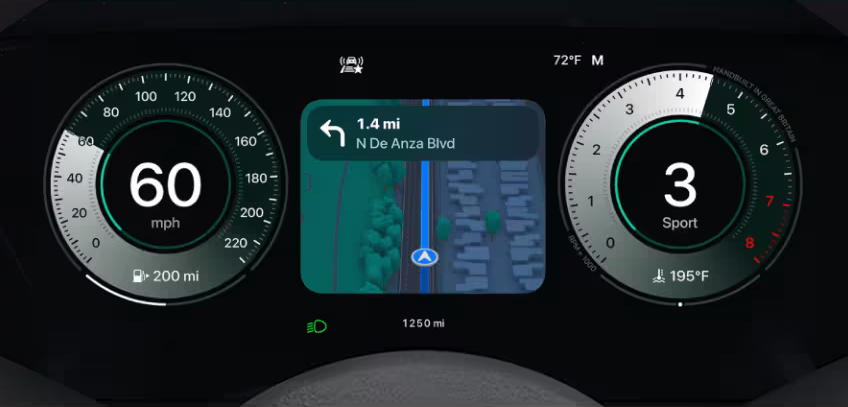The Growing Influence of Apple CarPlay in Automotive Innovation
Introduction
The integration of smartphone technology into vehicles has become increasingly prevalent, with Apple’s CarPlay leading the way. A recent survey conducted by McKinsey highlights a shifting consumer preference, emphasizing the necessity for car manufacturers to adapt to this trend. This article outlines the responses from various auto brands regarding Apple’s newest offering, CarPlay Ultra, and examines the implications for both manufacturers and consumers.
Consumer Demand Drives Change
According to McKinsey’s 2023 survey, nearly 50% of car buyers indicated they would refrain from purchasing vehicles that lack Apple CarPlay or Android Auto features. A striking 85% of car owners using Apple CarPlay expressed a preference for it over built-in manufacturer systems. This data underscores the importance of integrating popular infotainment features into new vehicle designs, prompting brands to reassess their technological strategies.
Carmakers’ Varied Responses
Among the 14 original brands evaluated by Apple, some manufacturers, such as Jaguar Land Rover, are still in the process of assessing the potential integration of the new system. In contrast, Ford and Nissan, along with its luxury Infiniti brand, have indicated they currently have no information to share about future applications of CarPlay Ultra.
Several major brands, however, are taking steps to incorporate Apple’s technology in varying capacities. For instance, BMW plans to integrate existing Apple CarPlay with new design features, demonstrating a commitment to consumer preferences while retaining brand identity. On the contrary, Audi has declared its intent to prioritize a seamless digital experience, opting not to use CarPlay Ultra but continuing to offer the standard version.
Volvo’s CEO, Håkan Samuelsson, provided insight into the industry’s mindset by suggesting that auto manufacturers should not compete in software development with tech giants like Apple. Instead, he advocated for leveraging existing technologies provided by these companies, stating, “There are others who can do that better, and then we should offer that in our cars.”
Aston Martin’s Unique Take
Aston Martin has made a notable move by integrating CarPlay Ultra into its newly developed infotainment system. However, the luxury brand emphasized that its design philosophy remains distinctively its own, with traditional physical dials available for users who prefer tactile interfaces. Discussions surrounding this integration included emphasis on data privacy, with assurances that utilizing CarPlay Ultra would not require sharing additional vehicle data, maintaining a level of control over information within Aston Martin’s own systems.
Potential Impact and Conclusions
The advancements and integration of Apple CarPlay are indicative of a larger trend in the automotive industry, where consumer preferences increasingly dictate technological innovations. As consumers lean towards integrated experiences that enhance usability, the approaches taken by car manufacturers reveal the balancing act of maintaining brand identity while satisfying market demands.
With the growing importance of technology in vehicles, manufacturers must navigate the complexities of collaborating with tech companies like Apple. The potential disruption of the automotive industry landscape hinges on how these relationships evolve and adapt in the wake of shifting consumer expectations.
In summary, as carmakers like BMW, Audi, and Aston Martin respond to the demand for CarPlay, the significance of such integrations will likely reshape not only the driving experience but also how brands are perceived in an ever-competitive market. The outcome of these shifts could fundamentally alter automotive design philosophy, influencing both consumer choice and brand loyalty in the years to come.









